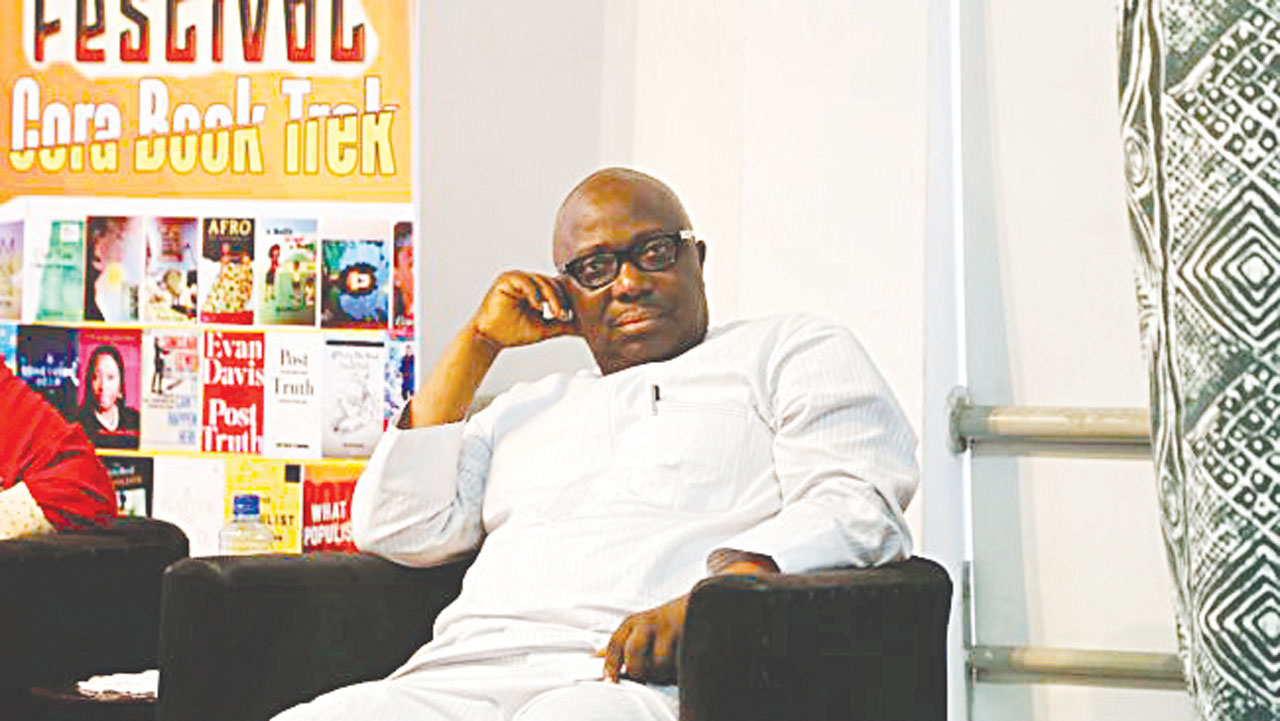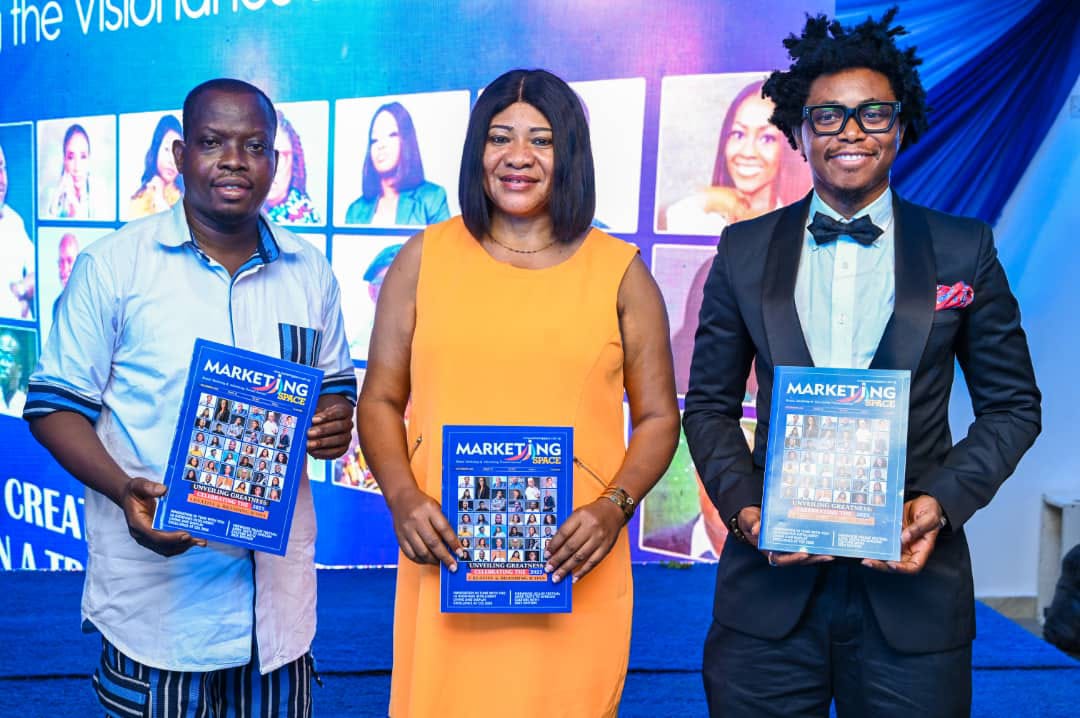
Publisher, Premium Times, Dapo Olorunyomi, has urged journalists and media professionals to maximise opportunities of Artificial Intelligence (AI), but stressed the need for critical thinking and ethical judgment.
Speaking at the 11th yearly conference of Association of Communication Scholars & Professionals (ACSPN) held in Lagos, he stressed the need to safeguard digital spaces against undue influence, promote media literacy, and uphold ethical standards in digital communication as essential steps towards fostering resilient and inclusive digital eco-system.
Describing threat to journalism as real, he disclosed the key is for journalists to leverage AI’s capabilities without losing the creativity, ethical judgment and critical thinking that are the hallmarks of human journalism.
He recalled that in May, The New York Times announced its AI initiative team, a small newsroom team charged with leveraging generative artificial intelligence and other forms of machine learning for the benefits of journalists and readers, while ensuring the paper’s use of these technologies remains effective and responsible.
Saying the rise of digital platforms offer unprecedented opportunities for journalists, he cited Ray Williams, an investigative story teller on TikTok that demonstrates the potential of AI-enhanced content creation.
By using AI to visualise his stories and develop characters in his audience’s minds, he disclosed Williams has over 14 million followers and averages 7 million views per post.
To Olorunyomi, his success not only illustrate how AI-driven content and targeted distribution can significantly influenced and engage audiences, transcending borders and bringing them closer to the news than ever before, but it has also led to substantial financial gains.
He added, “leveraging his massive following and high engagement rate, Williams has tapped into new revenue streams through brand partnerships, sponsored contents, and monetization of his TikTok channel. The AI-enhanced storytelling that captivates his audience has enabled him to command higher rates for collaborations and advertisements, far surpassing what traditional outlets might offer. This transition highlights how digital platforms and AI can redefine not just the reach but also the financial viability of journalism in the digital age. The ethical and regulatory dilemmas surrounding artificial intelligence and machine learning technology must be addressed with urgent. While AI holds promise in enhancing governance efficiency and service delivery, it must be deployed responsibly to mitigate risks such as, algorithmic biases, privacy violations and misinformation propagation.”
Looking ahead, he noted the integration of AI and emerging technologies present unprecedented opportunities to re imagine governance models, enhance public service delivery, and foster sustainable development across Africa. By harnessing the power of digital communication and innovation, we can forge a future where technology serves as a catalyst for inclusive growth, equitable access to information and accountable governance. I think countries like Nigeria that have gone ahead to set up the National AI Collectives, deserve accolade, and it is important to prioritize inclusivity as a key signature of how this collective and its national strategy operates.”
In conclusion, he stated, “I also urge the scholars and media practitioners to seize the moment and occupy the front row in the conversation and implementation of the National AI strategy if we don’t want to do a costly catch up like in the 90’s at the advent of the digital transition which led to many devastating consequences mostly for the industry.”
On his part, Lagos State Governor Babajide Sanwo-Olu, who was represented by the state Commissioner for Information and Strategy, Gbenga Omotoso, noted, “as communication scholars, we must change the narratives that define our society. The power of effective communication cannot be over emphasised and it is important to note the importance of communication in today’s world. Communication is a catalyst for change, innovation and development when used properly. In Lagos, communication is the lifeblood of governance. It is also a tool we are using to build trust. It is important we explore challenges of new information technology. We must also catch up with AI.”
He urged communication scholars and media professionals to urgently address challenges associated with the spread of fake news in the country “fake news is the biggest challenge we are facing”
On his part, ACSPN President and Vice Chancellor of the Federal University, Kashere Gombe State, Umaru Pate, enjoined participants to cultivate, nurture and sustain network and relationship building among themselves, especially scholars and practitioners. He said this was one of the ways to further build and sustain communication scholarship and practice.
With the theme: “Digital communication and governance in Africa” he added media professionals must interrogate issues confronting the industry such as the new media, funding, content, credibility and safety.
Chairman, Prof. Ralph Akinfeleye, delivering his opening remarks, stated that the process of digitalisation of information, good governance and change was very difficult and capital-intensive but must be confronted by leaders, scholars and governments at all levels.
The conference, during deliberations, observed that networking and relationship management among communication scholars and practitioners are very important and significant to the development of communication scholarship and practice.
It raised the need for building communication institutions, saying, researches are central to sustenance of communication scholarship and practice in Nigeria.
It also observed that the news media industry are faced with unprecedented crises of funding and information disorder at a time when communication has transformative power that can support media, democracy, governance and the value of freedom of expression.
The conference, therefore, adopted the following resolutions:
“Communication scholars and practitioners should continuously engage in research partnerships that will build communication institutions, literature, researches that are central to sustenance of communication scholarship and practice in Nigeria.
“Scholars and practitioners should engage in interdisciplinary collaborative research, learning and practices between Mass Communication, Computer Science and other disciplines.
“Governments at state and federal levels should develop policies on AI, fact-checking, and verification. This should be done in collaboration with big tech companies, government agencies, civil society organisations and academics.
“Communication researchers and practitioners should work with scholars around the world to understand and develop AI neutral network-based methods in order to map opinions and discussion for good governance and development in Africa.
“Communication institutions in Africa should construct and maintain news rooms and laboratories managed by professors of practice, who will teach the next generation of journalists and other practitioners in media and communication industry.
“Communication and Journalism institutions should start implementing the Teaching Hospital (PRACTICUM) Model in educating their students, a model that facilitates hands-on experiential learning thus combining theoretical knowledge with practical application in a real-world setting.”






